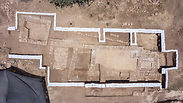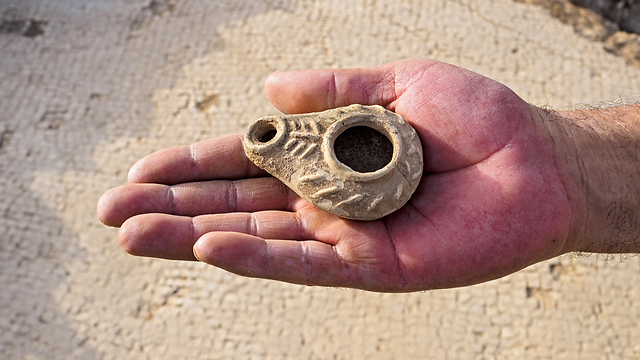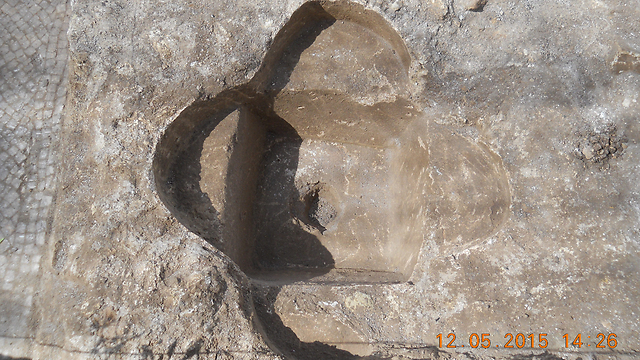
Archaeological excavations near Highway one which leads from Tel Aviv to Jerusalem, have uncovered a large Byzantine-period road station that included a church.
The excavations where initiated and funded by the National Roads Company, and were conducted while upgrading and widening the highway between Jerusalem and Tel Aviv.
According to the Israel Antiquities Authority "the current excavation season uncovered a church measuring about 16 m in length. The church includes a side chapel 6.5 m long and 3.5 m wide and a white mosaic floor."

"Fragments of red-colored plaster found in the rubble strewn throughout the building showed that the church walls had been decorated with frescoes," the Authority continued.
"To the west of the church were rooms that were probably used as dwelling quarters and for storage. One of them contained a large quantity of pottery tiles," the Authority spokesman continued.
The excavations yielded numerous different finds, testifying to intensive activity at the site including oil lamps, coins, special glass vessels, marble fragments, and mother-of-pearl shells.
According to the findings the Church is estimated to having been built in the Byzantine period beside the ancient road leading between Jerusalem and the coastal plain.
The road was apparently already established in the Roman period, and other settlements and road stations have previously been discovered that served those traveling the route in ancient times.

















